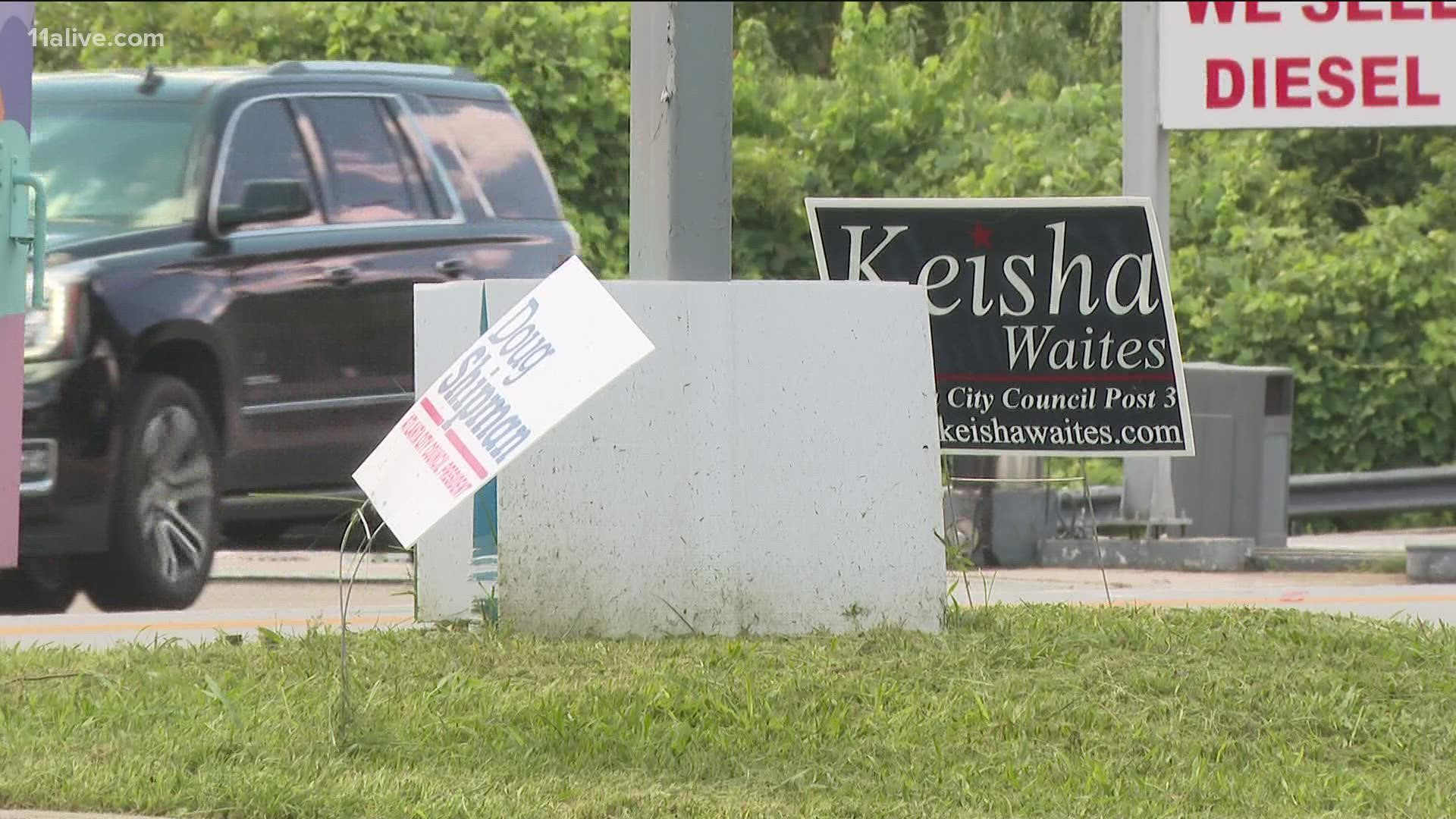ATLANTA — Friday marks the deadline to qualify for municipal elections in Atlanta. Several signs can be seen in yards, and more are expected in the coming weeks, according to Democratic political strategist Tharon Johnson.
"Buckle your seat belt," Johnson said. "In football, they say tighten your chinstrap. We’re still going through this process of COVID-19, so I think you’ll see an increase of campaigns utilizing yard signs.”
Johnson sees campaign signs as ways to communicate with voters, introduce a candidate, and to let others know about election day. Johnson said the placement of a campaign sign matters just as much as how it looks.
"The more signs you see or places you see them, it sort of signifies that your campaign is gaining momentum or retaining momentum you’re building," Johnson explained. "I’m a big believer in yard signs. Putting them in right-of-ways is definitely an effective strategy; while it is illegal and you’re breaking the law, people are going to do it. It’s left up to the city to have the level of enforcement to take those signs down.”
A City of Atlanta ordinance states it is illegal to place political campaign signs, which fall under the temporary sign designation, in public right-of-ways without a permit. Public right-of-ways include intersections, public roads, bridges, and sidewalks.
According to the ordinance, the city deemed signs excessive, stating they could be distracting and dangerous to pedestrians and drivers. Violation of the ordinance could result in the removal of a sign by city workers. The City of Atlanta could then charge a campaign for the cost of removal.
Some candidates have been willing to risk violation of the ordinance to get more exposure, despite the possibility of having a sign removed or stolen, Johnson said.
Republican political strategist Brian Robinson did not take much stock in political signs. He said signs should not constitute much of a campaign's budget, as they don't tend to connect with voters. Robinson believes signs can reach voters who aren't necessarily informed.
“At the end of the day, they’re not hugely important to the strategy," Robinson explained. "They’re more important for managing your grassroots support and managing your candidate. Signs don’t really change votes. They’re not really huge in moving voters. What they do is make the candidate feel better.”
Both Robinson and Johnson agree the races will intensify as mail and emails go out, social media presence increases, and attack ads ramp up.
Election Day is November 2.

